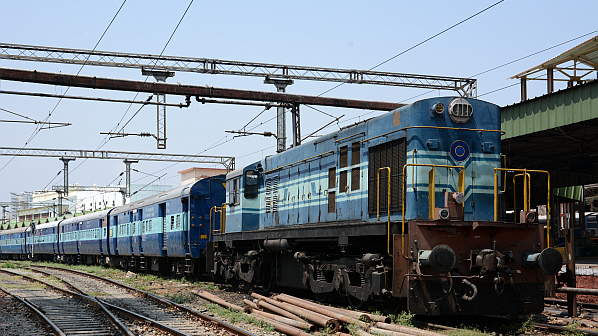THE Indian rail industry is hopeful that finance minister, Ms Nirmala Sitharaman’s, budget announcement on February 1 will provide the necessary impetus to remove structural and policy obstacles preventing private and foreign participation in Indian Railway’s (IR) modernisation plans.
The finance minister is again unlikely to announce new schemes for the rail sector. But expectations are high for reforms. “The finance minister must not only sizeably jack up the fund allocation for the rail sector, but must also provide minimum procurement guarantee on the acquisition of rolling stock,” says Talgo India managing director, Mr Subrata Nath. “Such steps will incentivise the private players.”
While IR’s operating ratio hovered around 98% in the last fiscal year, big ticket projects including construction of the western and eastern Dedicated Freight Corridors and the Mumbai - Ahmedabad High Speed Corridor have been delayed and incurred cost overruns. Plans to introduce modern trains on the mainline network did not materialise while proposals to equip locomotives with ETCS Level 2 systems have been languishing.
“An enhanced capital expenditure for the rail sector would encourage modernisation plans, while replacement of the passenger and freight fleet would be ideal,” says Mr Alain Spohr, Alstom India managing director. “Certainty policy and adequate government support for project execution can vastly improve private investment in the sector.”
IR’s Vision 2024 document - a subset of the National Rail Plan-2030 - presents an ambitious capacity enhancement plan including the construction of 21,343km of new lines, 7000km of gauge conversion projects, and 24,693 of track-doubling projects at an anticipated cost of Rs 7.498 trillion ($US 102bn) against which there was an advance of Rs 5.640 trillion. However, given IR’s crumbling finances, there is little hope that these targets will be met.
“IR has not demonstrated a policy clarity or a commitment to meet the completion targets of projects sanctioned in the annual budgets,” says Knorr-Bremse India managing director, Mr Dipankar Ghosh. “Rolling stock requirements are suddenly slashed in the middle of the year, leaving private manufacturers in the lurch. The government's L-1 policy (lowest price quote) is also flawed, as it encourages unscrupulous players to copy and sell inferior products at low rates.”
While IR's capex component has progressively increased in recent years, the much awaited policy reforms remain unfinished. The plan to set up an independent regulator has languished, as has the proposal to introduce corporate accounting practises. “Under the hierarchical bureaucratic order as it exists, change cannot happen,” says Mr Jaijit Bhattacharya of the Centre for Digital Economy Policy.

